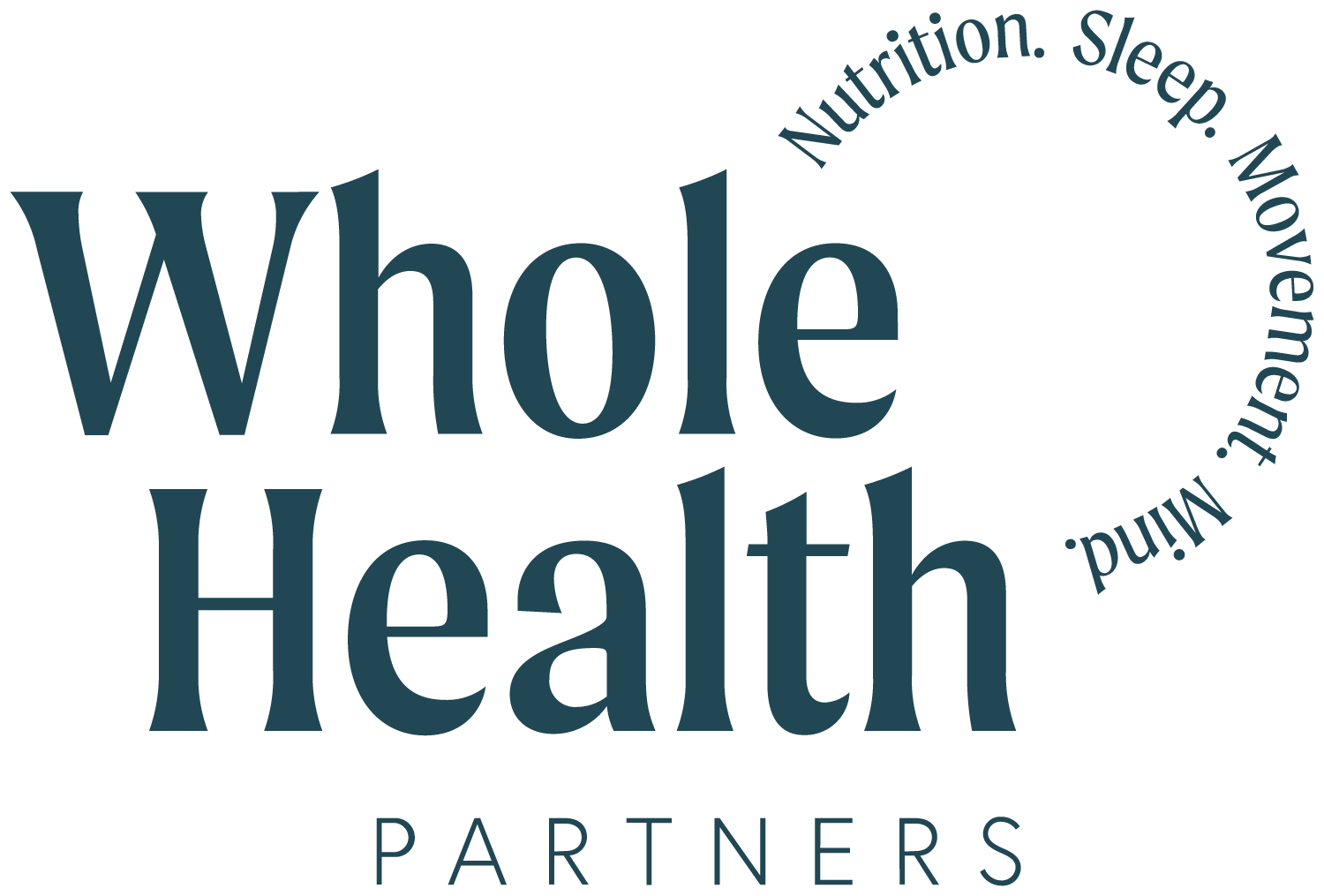Can Alcohol Cause Diabetes? Understanding the Connection
Navigating your health journey can sometimes feel overwhelming, especially when it comes to living with conditions as prevalent as diabetes mellitus. It’s a reality for so many, with Type 2 diabetes affecting millions, and countless others living with prediabetes, often without even realizing it. Alongside this, alcohol consumption is deeply woven into the fabric of our society, from celebratory toasts to winding down after a long day.
If you are working to manage your blood sugar levels or are concerned about the path toward prediabetes, then truly understanding the relationship between alcohol consumption and diabetes isn't just important—it's crucial. We're here to help you gain clarity and make informed choices for your well-being.
In this blog post, we’ll delve into how alcohol can directly affect your blood sugar levels, explore the long-term risks associated with alcohol consumption and the development or worsening of diabetes, and provide you with important guidelines for safe and mindful consumption.
Our goal is to empower you with the knowledge you need to live a healthier, more balanced life.
What Is Diabetes and Why Does It Matter?
Before we dive deeper into alcohol's effects, let’s establish a foundational understanding of diabetes itself. At its core, diabetes is a chronic condition characterized by high levels of glucose (sugar) in the blood. This occurs when your body either fails to produce enough insulin or doesn't effectively utilize the insulin it produces. (Insulin is a hormone vital for regulating blood sugar, acting like a key to unlock your cells so glucose can enter and be used for energy.)
There are a few main types:
Type 1 Diabetes: This is an autoimmune condition where the body's immune system mistakenly attacks and destroys the insulin-producing cells in the pancreas. It typically appears in childhood or adolescence and requires lifelong insulin therapy.
Type 2 Diabetes: Far more common, the risk of developing Type 2 diabetes occurs when the body becomes resistant to insulin (insulin resistance) or fails to produce enough insulin to maintain normal blood sugar levels. While genetics can play a role, lifestyle factors are significant contributors to its development.
Prediabetes: This is a critical stage where blood sugar levels are higher than normal but not yet high enough to be diagnosed as Type 2 diabetes. It's a warning sign, but also a powerful opportunity. With lifestyle changes, prediabetes can often be reversed, preventing the onset of Type 2 diabetes.
So, why does all of this matter? Consistently high blood sugar levels can lead to serious health complications over time, affecting your heart, kidneys, eyes, nerves, and more. Understanding this connection to blood sugar and insulin is key to understanding how various lifestyle factors, including what we eat and drink, can influence our risk factors.
And as we'll explore, alcohol consumption is one such factor that can subtly, and sometimes not so subtly, play a role in this delicate balance.
The Immediate Effect of Alcohol on Blood Sugar Levels
When you consume alcohol, its impact on your blood sugar isn't always straightforward or predictable. It can actually cause fluctuations, leading to both surprisingly low and unexpectedly high blood glucose levels, depending on various factors. Understanding these immediate effects is vital, especially if you're managing diabetes or prediabetes.
Low Blood Glucose (Hypoglycemia)
One of the most significant immediate risks is hypoglycemia, or dangerously low blood sugar. Alcohol interferes with the liver’s ability to release glucose, especially if consumed on an empty stomach. This can cause dangerously low blood sugar levels, especially for those on insulin or certain medications.
Here's why: your liver plays a crucial role in maintaining your blood sugar by releasing stored glucose (glycogen) and creating new glucose (gluconeogenesis) when your levels drop. However, when alcohol is present in your system, your liver prioritizes processing and detoxifying the amount of alcohol. This intense focus means its regular glucose-producing functions take a back seat. As a result, your liver's ability to release stored glucose or produce new glucose is impaired, leading to a drop in blood sugar levels. For individuals on insulin or certain diabetes medications, this effect can be particularly pronounced and dangerous.
Compounding this, alcohol directly interferes with glucagon, a hormone produced by the pancreas that works in opposition to insulin. While insulin lowers blood sugar, glucagon raises it by signaling the liver to release glucose. Alcohol consumption can inhibit glucagon's release and its effectiveness. This further compromises your body's natural ability to counteract falling blood sugar levels, increasing the risk of hypoglycemia.
High Blood Sugar (Hyperglycemia)
On the other hand, alcohol can also contribute to hyperglycemia, or high blood sugar, although this is often observed in slightly different scenarios. Drinks like sugary cocktails, beer, or liqueurs are high in carbs and sugars, causing spikes in blood glucose and triglyceride levels (fat in the blood). Additionally, alcohol can sometimes lead to impaired insulin sensitivity for a period after consumption, meaning your body isn't using insulin as effectively, which can also contribute to higher blood sugar levels.
➤ Key Takeaway: Alcohol throws a wrench into your body's finely tuned blood sugar control system. Being aware of these immediate impacts is the first step in making safer choices.
What Are the Risks of Heavy Drinking with Diabetes?
Heavy or excessive alcohol consumption poses significant risks, particularly for those with or at risk of diabetes. It can severely damage organs vital for blood sugar regulation, leading to severe health conditions. While very moderate drinking might have some nuanced effects, studies consistently show that heavy consumption significantly raises the risk of developing or worsening diabetes by directly undermining your body's ability to manage blood sugar.
Liver Damage
Chronic alcohol abuse can impair liver function, a critical player in glucose regulation. Alcohol use disorder can lead to fatty liver disease or cirrhosis, which can exacerbate insulin resistance, leading to elevated blood sugar levels. A damaged liver becomes less responsive to insulin (hepatic insulin resistance), causing higher blood sugar levels.
Pancreatitis
Alcohol is a common cause of pancreatitis, an inflammation of the pancreas. This damages insulin-producing cells and raises the likelihood of Type 2 diabetes. The pancreas produces insulin, and chronic pancreatitis, often linked to heavy drinking, can permanently impair its ability to make insulin, thereby causing or worsening diabetes. Alcohol is the most common cause of chronic pancreatitis.
Weight Gain & Obesity
Alcohol is packed with empty calories—calories that provide energy but lack essential vitamins, minerals, and fiber—often stalling fat metabolism. Unlike carbohydrates, fats, or proteins, alcohol cannot be stored, so your liver works quickly to detoxify it. This means that while your body is busy processing alcohol, its ability to efficiently burn fat for energy can be significantly limited, potentially for up to 12 hours after consumption. This effect on fat burning, combined with the often high caloric content of alcoholic beverages, creates a perfect storm for accumulating excess weight and body fat. This worsens insulin resistance, a significant factor in cardiovascular disease and complications of diabetes.
Excess body fat, particularly around the abdomen, is strongly linked to insulin resistance. Fat cells, especially visceral fat (the fat surrounding your organs), release inflammatory compounds that can interfere with insulin signaling, making your body's cells less responsive to insulin. This means your pancreas has to work harder to produce more insulin to maintain normal blood sugar levels. Over time, this can exhaust the pancreas and lead to chronically high blood sugar, ultimately paving the way for Type 2 diabetes.
Alcohol's Role in Insulin Sensitivity and Resistance
Insulin sensitivity refers to how effectively your body's cells respond to insulin; higher sensitivity means cells readily absorb glucose, while lower sensitivity (insulin resistance) means they struggle to do so. The relationship between alcohol and insulin sensitivity is nuanced, differing significantly between moderate and heavy consumption.
Moderate Alcohol Consumption
Some evidence suggests that moderate alcohol intake, such as a single glass of wine with a meal, may modestly improve insulin sensitivity for specific individuals.
For instance, a meta-analysis published in Diabetes Care (2015), which compiled data from several studies, indicated that light-to-moderate alcohol intake was associated with a lower risk of Type 2 diabetes compared to abstention, potentially linked to improved insulin sensitivity and lower fasting insulin levels. It’s important to note this is not a recommendation for non-drinkers to start consuming alcohol, as the potential benefits are often outweighed by other health risks.
Heavy Alcohol Consumption
Chronic heavy drinking disrupts the pathways involved in insulin signaling within cells, worsening insulin resistance. Excessive alcohol consumption forces the pancreas to overproduce insulin, potentially leading to beta-cell fatigue and dysfunction.
Research published in the Journal of Clinical Endocrinology & Metabolism highlights that heavy alcohol use impairs the ability of muscle and fat cells to absorb glucose effectively. This alcohol-induced "cellular confusion" forces your pancreas to work overtime, producing more and more insulin to try to maintain normal blood sugar levels.
Fluctuations in Blood Sugar
Alcohol can cause initial drops in blood sugar due to the liver's impaired glucose production. Sugary alcoholic drinks or later insulin resistance may lead to spikes in blood sugar, destabilizing glucose homeostasis over time.
Understanding the impact of alcohol on your body—especially regarding blood sugar and insulin levels—highlights the importance of moderation and consulting with healthcare professionals.
Alcohol and Diabetes Medications: Why the Combination is Risky
Combining alcohol with diabetes medications can be particularly dangerous, leading to unpredictable and potentially severe health consequences. If you are on medication for diabetes, discussing alcohol consumption with your healthcare provider is not just recommended, it's essential. Some of the key risks are as follows.
Severe Low Blood Glucose
Medications like insulin and sulfonylureas (e.g., glipizide, glyburide) lower blood sugar levels. Alcohol impairs the liver’s ability to produce glucose, increasing the risk of hypoglycemia. When you combine this impaired glucose production with medications that are actively lowering your blood sugar, the risk of a severe hypoglycemic episode skyrockets. Symptoms of hypoglycemia include dizziness, sweating, confusion, and tremors, which can mimic intoxication.
Drug Interference
Alcohol can reduce the effectiveness of diabetes medications and can amplify side effects such as dizziness or nausea. For instance, metformin, a common medication for Type 2 diabetes, can have an increased risk of lactic acidosis—a rare but serious metabolic complication—when combined with heavy alcohol use. Alcohol can also exacerbate the side effects of certain drugs or reduce their effectiveness in controlling blood sugar.
➤ Key Takeaways
Avoid consuming alcohol without discussing it with your healthcare team.
Be aware of the hypoglycemia risk, especially when taking insulin or sulfonylureas.
Moderate your alcohol intake to prevent interference with medications.
Always monitor blood sugar levels closely if alcohol is consumed.
Can a Person with Diabetes Drink Alcohol Safely? Actionable Tips for Mindful Choices
The good news is that for many individuals with diabetes or prediabetes, enjoying an alcoholic drink in moderation is possible, but it requires careful planning and awareness. It's not about prohibition, but about making informed, responsible choices that prioritize your health and blood sugar management. Here are some tips to help you navigate alcohol consumption safely.
Choose Wisely: Opt for Low-Sugar Options
Not all alcoholic beverages are created equal in terms of sugar content. Steer clear of drinks with sugary mixers, liqueurs, and regular beers, which can cause rapid spikes in blood sugar. Instead, consider:
Dry wines: Red or white, these typically have very low residual sugar.
Light beer: These options generally contain fewer carbohydrates and calories than their regular counterparts.
Spirits (like vodka, gin, whiskey, rum) mixed with sugar-free beverages: Think soda water, diet tonic, or diet soda. Avoid fruit juices or regular tonic water, which are high in sugar.
Never Drink on an Empty Stomach
This is perhaps one of the most crucial pieces of advice. As we've discussed, alcohol impairs your liver's ability to release glucose, significantly increasing the risk of hypoglycemia. Always consume alcohol with food, ideally a meal that includes carbohydrates and protein, to help stabilize your blood sugar.
Monitor Your Glucose Levels Diligently
Before you drink, and for several hours afterward (including before bed and upon waking), monitor your blood glucose. Alcohol's effects can be delayed and may continue for many hours after your last drink, potentially leading to nocturnal hypoglycemia. Knowing how alcohol specifically affects your body is powerful information.
The science around alcohol and health is constantly evolving. While the CDC still defines "moderate drinking" as up to one drink per day for women and up to two for men, the current scientific consensus is moving toward the understanding that there's no truly "safe" level of alcohol consumption.
Many older studies that suggested health benefits from moderate drinking are now being re-evaluated due to methodological flaws. Newer, more robust research increasingly links even "moderate" alcohol intake to increased risks of various cancers (e.g., breast, colorectal), liver damage, neuropathy (nerve damage), and certain cardiovascular issues like high blood pressure and heart disease.
Organizations like the World Health Organization now state that "no level of alcohol consumption is safe for our health," emphasizing that risks begin with any amount and increase with consumption. For individuals with diabetes, this evolving understanding is even more critical, as their metabolic system is already compromised.
Remember, every individual is unique, and how alcohol affects you can vary based on your medication, overall health, and other factors. Always have an open and honest conversation with your healthcare provider about alcohol consumption. They can provide personalized guidance tailored to your specific condition and help you make the safest choices for your long-term health.
When to Seek Medical Advice About Alcohol and Diabetes
While mindful consumption is possible for many, there are critical times when you should seek immediate medical advice regarding alcohol and your diabetes. Your safety is paramount. Seek immediate medical attention if you experience any of the following symptoms.
Signs of severe hypoglycemia after drinking: This includes confusion, disorientation, slurred speech, inability to be roused, seizures, or loss of consciousness. Because these symptoms can mimic intoxication, those around you must be aware of your diabetes and what to do in case of a severe low blood sugar.
Unexplained or persistent significant fluctuations in glucose levels: If you notice your blood sugar levels are consistently too high or too low after consuming alcohol, even in moderate amounts, this warrants a discussion with your doctor.
New or worsening symptoms of pancreatitis or liver issues after drinking, such as severe abdominal pain, nausea, vomiting, or jaundice (yellowing of the skin or eyes).
Any adverse reactions or unusual symptoms you suspect are related to combining alcohol with your diabetes medications.
Personalized Consultation is Key
If you're unsure about how alcohol fits into your diabetes management plan or if you're struggling to control your drinking, we are here to support you. Every individual's body responds differently, and factors like your specific type of diabetes, medications, overall health, and lifestyle all play a role. A personalized medical consultation is invaluable for understanding your unique risks and developing a safe approach.
At Whole Health Partners, we believe in a collaborative approach to health. Our team of healthcare providers is here to work with you to comprehensively manage your diabetes, addressing all aspects of your lifestyle, including alcohol consumption, nutrition, exercise, and medication. We're committed to empowering you with the knowledge and support you need to live your healthiest life.
FAQs
Does alcohol turn into sugar in the body?
No, alcohol does not directly turn into sugar (glucose) in your body in the same way carbohydrates do. When you drink alcohol, your liver prioritizes processing it because alcohol is toxic. While the liver is busy breaking down alcohol, its normal functions, like releasing stored glucose or creating new glucose, are inhibited. This is why alcohol can actually lower your blood sugar, especially on an empty stomach.
However, many alcoholic beverages, particularly mixed drinks, cocktails, liqueurs, and even some beers, contain added sugars and carbohydrates that do get converted into glucose, which can then raise your blood sugar. So, while the alcohol itself doesn't become sugar, the sugary components of many drinks certainly do.
Can alcohol reverse diabetes if you quit?
Quitting alcohol, especially heavy drinking, can significantly improve your health and blood sugar management, but it cannot "reverse" established Type 1 diabetes. For Type 2 diabetes and prediabetes, quitting or significantly reducing heavy alcohol consumption can lead to substantial improvements and, in some cases of prediabetes or early Type 2, contribute to remission.
By eliminating alcohol's negative effects on the liver, pancreas, insulin sensitivity, and weight, your body's ability to regulate blood sugar can be significantly improved. However, "reversal" or "remission" of Type 2 diabetes typically requires a combination of comprehensive lifestyle changes (diet, exercise, weight loss) alongside reducing alcohol intake. For Type 1 diabetes, which is an autoimmune condition, quitting alcohol will improve overall health and make management easier, but it will not cure the condition.
Explore Our Services
Women’s Health: Hormonal Health, Polycystic Ovarian Syndrome (PCOS), and Perimenopause/Menopause
Diabetes, Pre-Diabetes, Insulin Resistance, and Blood Glucose Management
High Blood Pressure/Hypertension Management
High Cholesterol Management
Lifestyle Medicine



![FREE EMAIL SERIES TAKE BACK YOUR NUMBERS Learn how to manage your A1C naturally. {{ include_custom_fonts({"Europa Light":["Light"],"Moret":["Regular"],"Europa Regular":["Regular"]}) }}](https://hubspot-no-cache-na2-prod.s3.amazonaws.com/cta/default/242535189/interactive-227712575184.png)


